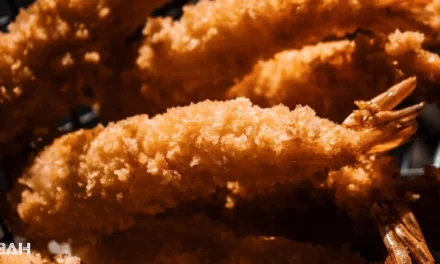As a food enthusiast and a firm believer in the importance of halal dietary choices, I embarked on a fascinating journey to uncover the halal status of crickets. In this comprehensive guide, I will delve into the intricacies of halal certification, the religious perspectives surrounding consuming crickets, and provide a definitive answer to whether crickets can be enjoyed with confidence by those adhering to halal principles.
The Complex Debate on Crickets and Halal Foods
Halal refers to anything that is permissible under Islamic law. More specifically, halal covers:
- Foods that adhere to Islamic dietary guidelines
- Ritual slaughter practices for meat products
- Cosmetics, pharmaceuticals and other consumable products that contain halal ingredients
- Ethical business and finance practices that align with Islamic principles
The Arabic word “halal” means “permissible” or “lawful”. Its opposite is “haram”, meaning “forbidden”.
“Halal is not just about ingredients but the entire supply chain including storage, display, preparation, hygiene, packaging, and delivery.”
Some key principles governing halal foods include:
- Abstinence from alcohol and intoxicants
- Avoidance of pork, blood, carrion and certain animal by-products
- Humane slaughter by a Muslim through the ritual cut
- Avoidance of contamination through storage and preparation
Crickets are an emerging food trend, lauded for their sustainability, nutrition and versatility. However, their status under Islamic law remains unclear. This article will analyze different perspectives on whether crickets can be considered halal.
Background on Insects as Food
Insects have been consumed as food by humans for thousands of years. Some key points:
- Over 2000 species of insects are eaten globally, mainly in Africa, Asia, Latin America.
- Insects formed part of traditional diets and cuisines in many cultures.
- FAO estimates that 2 billion people worldwide regularly consume insects.
| Insect | Food Uses |
|---|---|
| Crickets | Can be eaten whole, ground into flour |
| Mealworms | Cooked, dried, added to foods |
| Caterpillars | Eaten fresh or dried |
Some benefits of insects as food:
- High in protein, vitamins, minerals
- Require less feed, water and space than traditional livestock
- Emit fewer greenhouse gases with lower environmental impact
Crickets specifically have gained attention as a sustainable protein source:
“Crickets have a high food conversion efficiency thanks to their poikilothermic nature. For example, crickets need six times less feed than cattle to produce the same amount of protein.”
Commercial cricket farming in dedicated facilities is scaling up to meet demand.
Principles of Halal And Haram Foods in Islam
The Quran and Hadith provide guidance on permitted (halal) and prohibited (haram) foods in Islam:
“O mankind, eat from whatever is on earth [that is] lawful and good and do not follow the footsteps of Satan. Indeed, he is to you a clear enemy.” (Quran 2:168)
Some key principles governing halal foods:
- Tayyib – Foods must be wholesome, pure, nutritious according to Islamic law.
- Zabiha – Permitted animals must be slaughtered through ritual cut by a Muslim.
- Alcohol – All intoxicants like alcohol are prohibited.
- Pork – Pig meat and pork products are forbidden.
- Blood – Blood must be fully drained from meat.
Additionally:
- Carrion, animals killed by wild beasts or accident are forbidden
- Carnivorous animals like lions, bears, snakes are haram
- Foods contaminated with haram substances are impermissible
Permitted (halal) animals include:
- Cattle, sheep, goats, chickens, fish etc. with specific restrictions.
[Quran 5:1]: “Prohibited to you are dead animals, blood, the flesh of swine, and that which has been dedicated to other than Allah.”
Scholarly Perspectives on Insects Halal Status
There is a range of scholarly opinion on whether insects like crickets are permitted under Islamic law:
Classical Perspectives
- The major schools of Islamic jurisprudence (Hanafi, Maliki, Shafi’i, Hanbali) differ on insects:
- Hanbali and Maliki consider all insects haram
- Hanafi and Shafi’i permit locusts and some beetles
Contemporary Positions
-
Some modern scholars prohibit all insects as filth (najas) or vermin:
“It is prohibited to eat worms and insects that breed in rotten matter, like flies and others.”
-
Others argue insects are halal since they are not explicitly banned in Quran/Sunnah:
“Our view is that they are Creation of Allah like any other animal, so it is permitted to eat those two types of insects.”
-
Precautionary view to avoid insects due to doubtful status
Issues like insect diet and contamination may affect ruling.
Modern Considerations To Eat Insects
Some practical factors to consider regarding crickets and halal guidelines:
-
Certified farms – Some companies raise crickets specifically for human consumption and adhere to halal standards. This avoids issues like contamination.
-
Cooking methods – Crickets are most palatable when fried, roasted or ground into flour. This may make them more appetizing to skeptical consumers.
-
Indirect use – Crickets could be used in animal feed or pet food first before introducing into human food chain. This follows the example of other novel proteins like quinoa gaining acceptance over time.
“Crickets and insect flour may find wider acceptance when used as an ingredient in processed foods, rather than being eaten whole.”
- Future food – Insects offer sustainability benefits and could be vital for future food security as global population rises. Their halal status merits further examination.
As the commercial cricket industry grows, there is a need for clearer guidelines aligned with Islamic principles of purity, ethics and holistic wellbeing.
FAQ: Are Crickets Halal?
Are insects halal to eat in Islam?
In Islam, the permissibility of eating insects is a matter of debate among scholars. Some scholars consider all insects halal, while others have specific criteria for determining which insects are permissible to consume.
Are crickets considered halal to eat?
According to the majority of scholars, crickets are considered halal to eat. However, it is important to note that the halal certification of cricket products may vary, so it is recommended to verify the source before consuming them.
What does the Quran say about consuming insects?
The Quran does not specifically mention the permissibility or prohibition of consuming insects. Therefore, different opinions exist among scholars based on interpretations of general principles in Islamic law.
Are grasshoppers and locusts also permissible to eat?
Yes, grasshoppers and locusts are generally considered halal to eat by scholars. These insects are mentioned in some narrations where the Prophet Muhammad (peace be upon him) permitted their consumption.
Can insects be consumed according to the Shafi’i school of thought?
Yes, the Shafi’i school of thought allows the consumption of insects, considering them halal. However, it is always advised to consult with a knowledgeable scholar regarding any dietary concerns.
Is it haram to eat insects in Islam?
While some scholars consider certain insects impermissible to eat, the opinion of the majority is that insects are considered halal unless there is clear evidence to the contrary. Therefore, it is not generally considered haram to consume insects.
Are edible insects commonly consumed in Islamic countries?
Yes, in some Islamic countries, such as certain regions in Africa and Asia, edible insects have been consumed for centuries. They are often prepared in various traditional dishes.
Is it necessary to have halal certification for insect-based food products?
While halal certification is not always mandatory for insect-based food products, it is recommended to ensure the source of the insects and the methods used in processing to maintain their halal status. Certifications can provide consumers with assurance.
Can consuming insects be considered impure or impious?
the consumption of insects is considered impure or impious
Conclusion
The halal status of crickets and other insects remains unclear within Islamic law:
- Some schools of thought prohibit insects entirely as filth/vermin
- Others argue lack of explicit ban in Quran means insects are permissible
This difference stems from varied interpretations of scriptural sources and the nature of juristic reasoning in Islam.
Contemporary factors add new dimensions:
- Insect farming may avoid previous concerns over contamination
- Food security benefits merit consideration of sustainable proteins
More research and guidance is needed from Islamic authorities:
- Which insect species are permitted or prohibited, and under what conditions?
- How can insect production and processing be brought in line with halal principles?
“There is a need for deeper engagement on this issue among Muslim religious scholars and scientists to determine broader consensus.”
This will allow the halal industry to take advantage of insects as an ethical and eco-friendly food source, in accordance with Islamic values.





